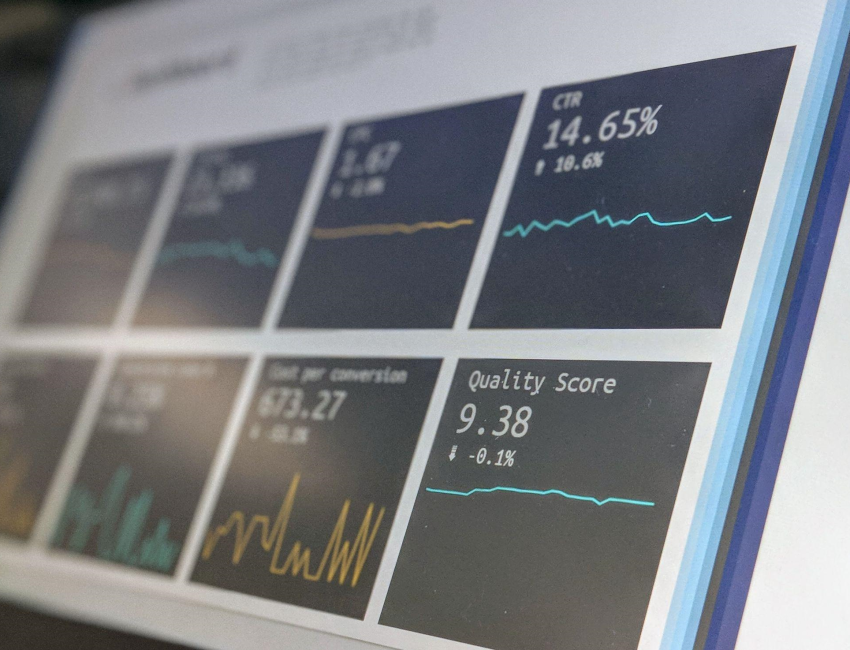Want your B2B marketing to really stand out this year? We’re beginning to see some trends appear that are setting the standard for 2023 in the world of business-to-business commerce. If your B2B marketing needs a boost, or if it’s gotten a little stale since 2022, these ideas may give you the fresh start you need. Bring out the whiteboard and make some notes as you draw inspiration for the marketing year to come.
#1: More Utilization of AI
With so much discussion around AI lately — from self-driving cars to books written by AI — it’s no surprise that AI is impacting the B2B marketing world. Many B2B marketers are using AI in their marketing in order to take some of the manual tasks out of their work, save time, and keep up with our fast-moving digital age.
So what exactly can AI do of your marketing? Quite a bit, actually. While AI-generated content writing is still highly debated — with some finding that it still doesn’t compare to human writing, AI can write your email subject lines, pithy social media posts, perform keyword research for your content, and offer analytics based on all the data you’ve collected. 2023 is a boom for AI, and B2B marketing is no exception.
#2: More Focus on Social Media Marketing
Social media is a must for all marketers, including B2B marketers. Many social media platforms that B2B marketers use — such as Facebook or LinkedIn — allow paid ads along with analytics that the marketers can track from the social media platform itself. In 2022, social media was actually found to be the top marketing channel for B2B marketers, ranking even above a website.
#3: More B2B Podcasts
Podcasts are a creative way to market your B2B brand. They can be listened to on the way to work, throughout the work day, or while tackling a hobby. Brands often sponsor podcasts in exchange for getting an ad spot, but there are also a number of business-oriented podcasts cropping up, as well.
These podcasts can show your expertise in the industry, your leadership skills and savvy, thus building trust with your clients before they even begin to work with you. Plus, you can build relationships with other businesses through ad spots or podcast guests.
#4: Sales Focused PR
PR is a key ingredient to any marketing recipe. It’s all about taking the reins on how your brand is perceived and building trust with your clients. This is also ongoing — you need good public relations as a new company, and you may need a good PR strategy to change the perception of your brand once you’ve already been established.
Some marketers may handle public relations themselves, while others might work with a PR specialist. Whatever avenue you choose, make sure your PR strategy has a heightened focus on the kind of PR that will lead to sales.
#5: Focus on ROI
Marketing is expensive, and it can be devastating for a business when it doesn’t yield results. B2B marketers are budgeting their marketing strategies carefully, opting for the choices that offer them the best return on investment (ROI). This may vary depending on the industry that you target. Conducting market research to determine the most effective marketing strategies is always a good idea, as well as conducting research to see what works best with your own customer base.
#6: Digital Experience Over Salesperson
As the business world becomes increasingly millennial, and Generation Z takes their places in the workforce, we’re seeing a trend away from meeting a salesperson and getting a consultation. Instead, younger generations want to do their own research and come to their own conclusions.
Rather than a focus on consultations, B2B marketers are focusing on making the digital experience clear, enjoyable, and independent. Younger B2B clients may arrive already armed with research about your brand; but a poor user experience on your website or while attempting to get started with a demo may drive them away.
#7: Data Compliance
Compliance with data privacy laws became a big talking point in 2018, when the General Data Protection Regulation went into effect throughout Europe — and businesses serving European customers. However, the need to prioritize consumer informed consent when collecting data has not decreased in recent years. Instead, more regional data regulation policies have cropped up.
In 2023, B2B marketers are still trying to stay careful about avoiding hefty fines and penalties from failing to adhere to data compliance. Make sure any data software or platform you use has compliance built in and that you stay up to date on data regulation.


